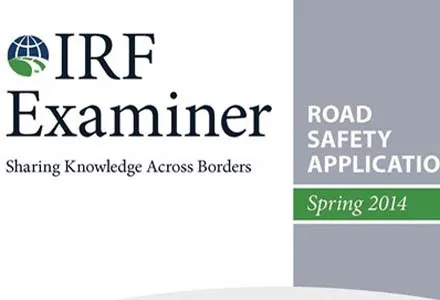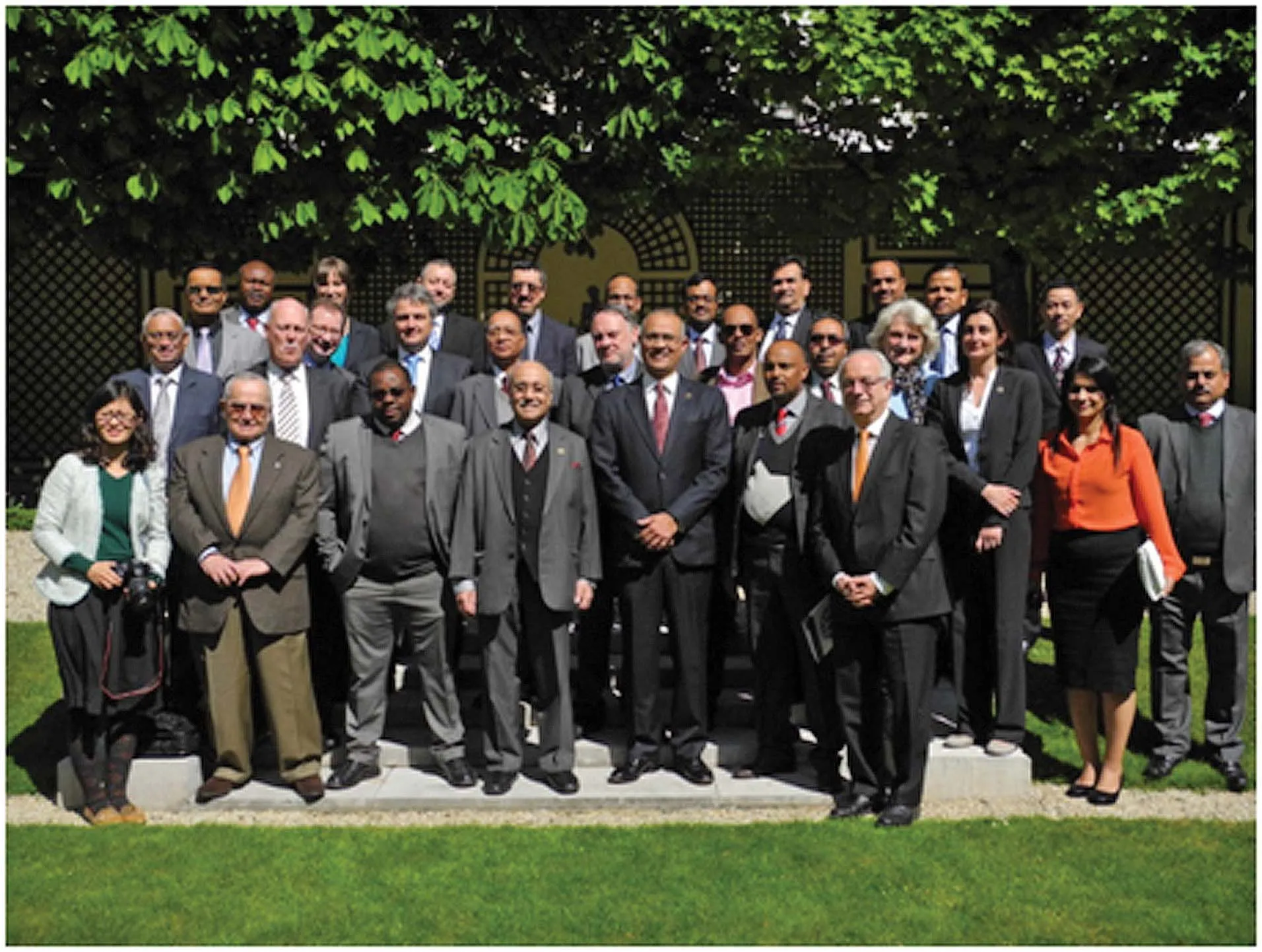The road infrastructure sector, in its strive to deliver better products for its customers, such as road authorities, has worked hard to develop innovative solutions. These are intended to be more durable, making them more cost-effective in the long-run, and also more environmentally friendly. In its efforts, however, it has often been frustrated by a rigid legal framework that leaves little room for manoeuvre to its customers. Until last year, existing rules for public procurement at EU level gave almost u
May 19, 2014
Read time: 4 mins
The road infrastructure sector, in its strive to deliver better products for its customers, such as road authorities, has worked hard to develop innovative solutions.
These are intended to be more durable, making them more cost-effective in the long-run, and also more environmentally friendly.
In its efforts, however, it has often been frustrated by a rigid legal framework that leaves little room for manoeuvre to its customers. Until last year, existing rules for public procurement at EU level gave almost unconditional preference to the cheapest bidder, creating what in industry terms has been coined the ‘dictatorship of the lowest price’. This, coupled often with a lack of strategic foresight when it came to road maintenance (no multi-annual contracts), has meant in practice that road authorities have been practically unable to opt for better solutions. While these may be more expensive in the short-run they will prove great value for money five years down the line and provide enhanced performance for users on the road.
Seeking to bring about a paradigm shift when it comes to government procurement, the1116 European Union recently approved a far-reaching reform of the rules for public procurement. The new Directive 2014/24/EU, which was adopted last April promises (in principle at least) that authorities for the first time will consider elements such as life-cycle costs and eco-labels when purchasing services linked to road construction and maintenance.
“If this does indeed get implemented by road authorities, then it will be a significant game changer,” explained Christophe Nicodème, ERF director general. “Our members have long been pioneering innovative solutions, however, in the long-run, there is little incentive for companies to keep on developing such solutions if their customers are not interested in purchasing them.”
To better understand the real implications that these new rules will have on the ground for the road infrastructure sector, the ERF is organising on Wednesday 18th June a full day Symposium entitled ‘Future Infrastructure Challenges for the Road Sector’. In addition to the role of innovation in public procurement, the conference will touch upon a number of related but equally important topics.
“We intend to also hold a dedicated panel on the role of Green Public Procurement,” explained José Diez, in charge of sustainability matters at the ERF. “The European Commission has to date developed GPP criteria for road construction and maintenance and is starting to work on a similar set of requirements for road markings. Until now, these have not only been voluntary in nature, moreover, road authorities have been reluctant to use them as a result of existing rules. With the new Directive coming into place, we may see these criteria actually come to the forefront, so it is important for our members to better understand how this may affect them.”
Naturally, the ERF event will also touch upon the themes of financing and safety. Innovation and green goods may be desirable, however, unless the downward trend in road spending comes to a halt, innovation will remain a luxury for the few. It is essential that policy-makers understand the full socio-economic implications of an irreparable deterioration of Europe’s network for the continent’s trade and competitiveness and on the occasion, ERF will be presenting its latest paper on road asset management to make the point. Moreover, a dedicated session on road safety will look at how the European Commission, road authorities and the private sector can work together to enhance safety on Europe’s roads in view of the upcoming revision of the Infrastructure Safety Directive and its gradual extension to the secondary network.
Last but not least, the Symposium will explore how C-ITS solutions can help promote greater safety and enable road authorities to better maintain their roads. “The advent of big data offers a wealth for opportunities for road managers as it can allow them to have a better knowledge of the condition of their road as well as deploy C-ITS to promote more safety and green driving on the roads,” said Nicodème.
The draft agenda of the event can be found at:%$Linker:2 External <?xml version="1.0" encoding="utf-16"?><dictionary /> 0 0 0 oLinkExternal http://ERF.be/index.php?option=com_content&view=article&id=425:save-the-date-18th-june-ERF-symposium-on-future-road-infrastructure-challenges&catid=1:press-release&Itemid=2<br /> Visit ERF Website false http://erf.be/index.php?option=com_content&view=article&id=425:save-the-date-18th-june-erf-symposium-on-future-road-infrastructure-challenges&catid=1:press-release&Itemid=2 false false %>
For more information about the event, please contact Sonila Metushi: %$Linker:2 Email <?xml version="1.0" encoding="utf-16"?><dictionary /> 0 0 0 oLinkEmail [email protected] Contact Sonila false mailto:[email protected] true false %>
These are intended to be more durable, making them more cost-effective in the long-run, and also more environmentally friendly.
In its efforts, however, it has often been frustrated by a rigid legal framework that leaves little room for manoeuvre to its customers. Until last year, existing rules for public procurement at EU level gave almost unconditional preference to the cheapest bidder, creating what in industry terms has been coined the ‘dictatorship of the lowest price’. This, coupled often with a lack of strategic foresight when it came to road maintenance (no multi-annual contracts), has meant in practice that road authorities have been practically unable to opt for better solutions. While these may be more expensive in the short-run they will prove great value for money five years down the line and provide enhanced performance for users on the road.
Seeking to bring about a paradigm shift when it comes to government procurement, the
“If this does indeed get implemented by road authorities, then it will be a significant game changer,” explained Christophe Nicodème, ERF director general. “Our members have long been pioneering innovative solutions, however, in the long-run, there is little incentive for companies to keep on developing such solutions if their customers are not interested in purchasing them.”
To better understand the real implications that these new rules will have on the ground for the road infrastructure sector, the ERF is organising on Wednesday 18th June a full day Symposium entitled ‘Future Infrastructure Challenges for the Road Sector’. In addition to the role of innovation in public procurement, the conference will touch upon a number of related but equally important topics.
“We intend to also hold a dedicated panel on the role of Green Public Procurement,” explained José Diez, in charge of sustainability matters at the ERF. “The European Commission has to date developed GPP criteria for road construction and maintenance and is starting to work on a similar set of requirements for road markings. Until now, these have not only been voluntary in nature, moreover, road authorities have been reluctant to use them as a result of existing rules. With the new Directive coming into place, we may see these criteria actually come to the forefront, so it is important for our members to better understand how this may affect them.”
Naturally, the ERF event will also touch upon the themes of financing and safety. Innovation and green goods may be desirable, however, unless the downward trend in road spending comes to a halt, innovation will remain a luxury for the few. It is essential that policy-makers understand the full socio-economic implications of an irreparable deterioration of Europe’s network for the continent’s trade and competitiveness and on the occasion, ERF will be presenting its latest paper on road asset management to make the point. Moreover, a dedicated session on road safety will look at how the European Commission, road authorities and the private sector can work together to enhance safety on Europe’s roads in view of the upcoming revision of the Infrastructure Safety Directive and its gradual extension to the secondary network.
Last but not least, the Symposium will explore how C-ITS solutions can help promote greater safety and enable road authorities to better maintain their roads. “The advent of big data offers a wealth for opportunities for road managers as it can allow them to have a better knowledge of the condition of their road as well as deploy C-ITS to promote more safety and green driving on the roads,” said Nicodème.
The draft agenda of the event can be found at:%$Linker:
For more information about the event, please contact Sonila Metushi: %$Linker:









